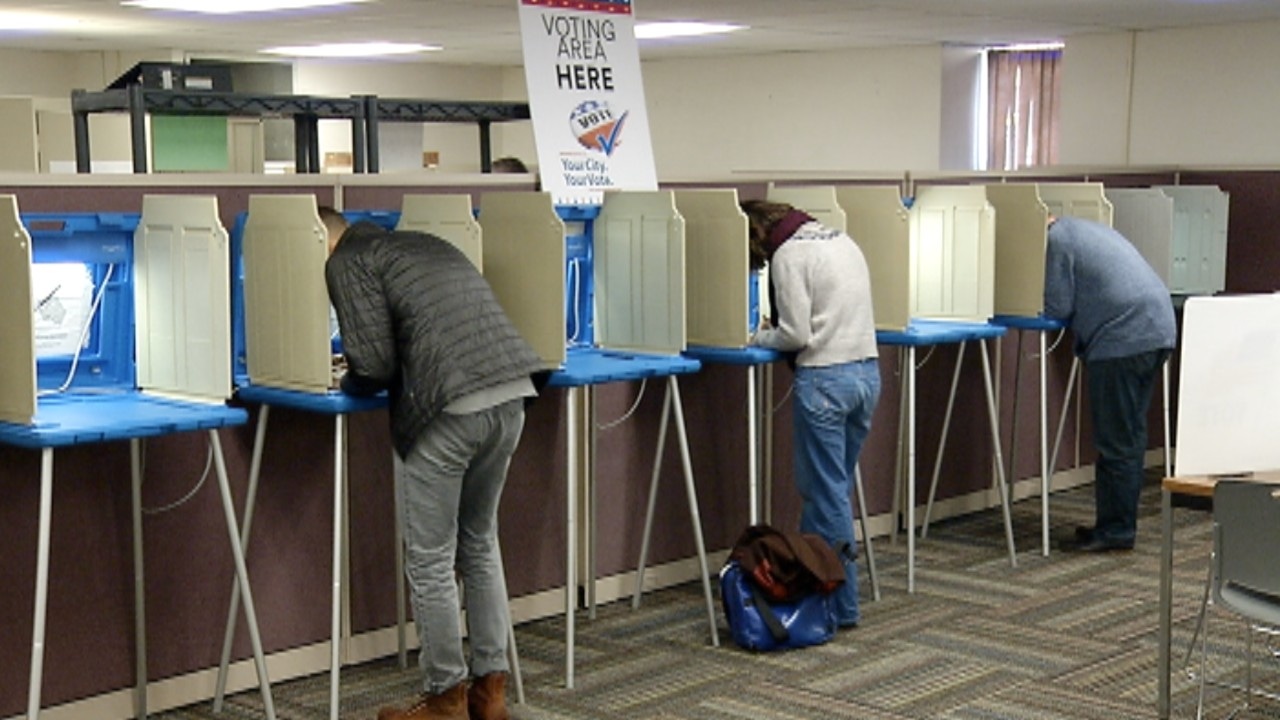DNC set to decide on Minnesota moving up 2024 presidential nominating calendar
[anvplayer video=”5150578″ station=”998122″]
Rumors of Iowa’s death as the first-in-the-nation presidential nominating state have circulated for many years, but 2024 might be the year it actually happens.
The Democratic National Committee (DNC) Rules and Bylaws Committee could vote on its 2024 presidential nomination calendar this Friday or Saturday.
“I think the chances are greater than ever that Iowa will not start the 2024 Democratic nomination process,” says Steven Schier, Carleton College political analyst.
The DNC is considering moving away from Iowa and New Hampshire as the first two states in the nomination process. Instead, its looking at states such as Minnesota, Michigan and Nevada.
“The DNC is choosing to move away from the Iowa-New Hampshire model,” Minnesota’s DFL Gov. Tim Walz said this week. “They’re small states. They’re predominantly white.”

Voters cast ballots at a polling place. (KSTP/file)
Iowa Democrats also had significant issues tabulating the results of their 2020 caucuses, and it took days before a winner was declared. The chairman of the Iowa Democratic Party resigned in the aftermath of those caucuses.
“In order to be an effective initial state in the process you need to run a clean process that gives you a quick result,” Schier says. “Iowa did not do that in 2020.”
It might have been the final straw for the DNC, which has considered moving the Iowa caucuses for several years. Gov. Walz sent a letter to the DNC recently making a pitch for Minnesota.
“We’re looking at a state that is more diverse,” he told reporters this week. “A state that is more moderate in size. Not too large and one in the Midwest, and especially now one that has proven progressive values can win statewide.”
But Schier says the DFL’s recent success in Minnesota elections could actually hurt in some ways. “Often the party likes to start its early delegate selection in swing states and competitive states,” he says. “Minnesota’s been the most Democratic state in presidential elections since 1972.”
If the DNC moves the Minnesota primary up on the calendar it could mean the Democrats and Republicans will have Minnesota primaries on different days.
Under current state law, Democrats and Republicans in Minnesota have to agree on a single date. However, Democrats — who now control the Minnesota Governor’s Office, House and Senate — have signaled they could change the law to allow the state primary to move up from the Super Tuesday March 5, 2024, date to sometime during the first week in February.
That could be a problem for Minnesota Republicans who have to abide by Republican National Committee rules.
“The Minnesota Republican Party has no objection in principle to moving the Presidential Preference Primary to an earlier date,” Minnesota Republican Party Chair David Hann said in a statement. “We do, however, need to comply with the National Republican Party Rules. While the DNC is currently debating their rules, the RNC rules process will not happen until 2024. Until that time, our current rules would remove about 75% of our National Convention Delegates if Minnesota were to choose to have an earlier Preference Primary. The Democrats are well aware of this.”
Hann goes on to say a vote by the DFL House and Senate with approval by the governor to unilaterally change their primary date would violate the spirit of the current law.
“I find it difficult to believe that the DFL would take such a blatantly partisan action designed to disenfranchise Republican voters in the next Presidential election and would hope they would be willing to work with the RNC on finding an acceptable compromise,” he said.
Schier says as it stands now, there’s little chance the RNC would agree to move up Minnesota on the calendar.
“The national Republican Party wants to stick with the current calendar with Iowa and New Hampshire going first,” Schier said. “They don’t want to move Minnesota to the front.”
If the DNC Rules and Bylaws Committee approves a change in the nominating calendar this week, it would still need to be approved by the full DNC in January.